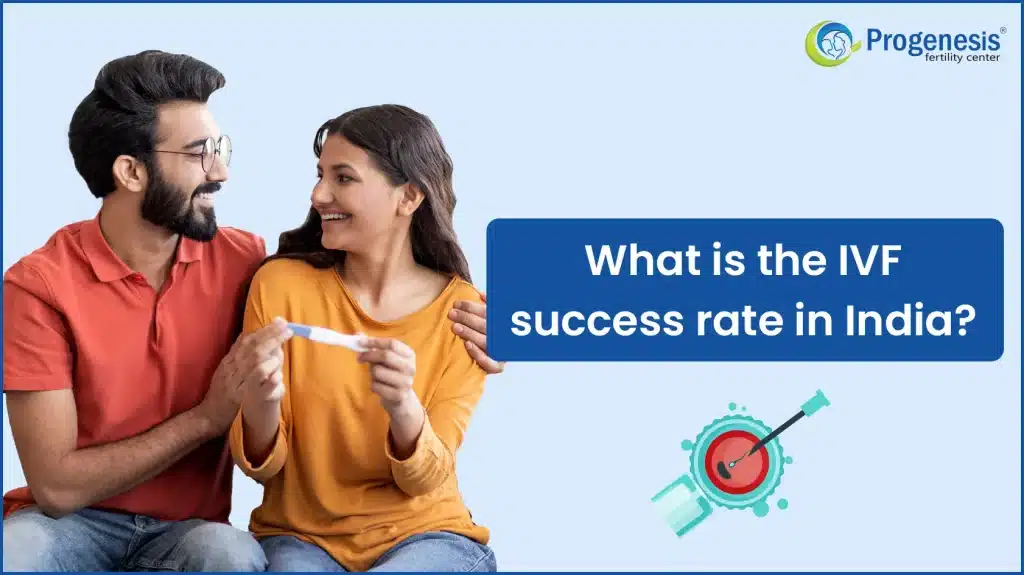In vitro fertilization (IVF) is a sequence of treatments that can result in a pregnancy. It’s a treatment for infertility, a disorder in which most couples can’t get pregnant after at least a year of trying. IVF can also be used to protect a child from inheriting genetic abnormalities. In this blog, we will be talking about the IVF success rate in India and why it is considered to be the most successful fertility treatment.
First, let us understand how IVF is done. During in vitro fertilization, mature eggs are extracted from the ovaries and fertilized in a laboratory with sperm. Then, one or more of the fertilized eggs, known as embryos, are implanted in the uterus, which is where newborns develop.
IVF tends to be far more effective for couples who struggle with infertility, because it resolves the obstacles that can prevent sperm from reaching the egg. When IVF is used, certain medical disorders including endometriosis and PCOS also have a less impact in preventing a successful conception
According to the Society for Reproductive Technology (SART), IVF results in 55.6% of live births among women under 35. First embryo transfer live birth rate is 41.4%. The average number of live births is about 47% with a later embryo transfer.
Table of Contents
Factors affecting fertility
The probability that an in vitro fertilization cycle would result in pregnancy is affected by a number of factors, both male and female.
- Age: Younger women have better success rates with IVF treatments. If you are under 35, you have the best chances of getting pregnant through the procedure. Your ovaries are less likely to respond well to hormone-stimulating medications as you age, which results in fewer eggs being produced. Additionally, as you age, eggs often become of lower quality. As a result, the eggs have trouble implanting in the uterus. Even if you do become pregnant as a result of the treatment, older women have a decreased likelihood of giving birth to a healthy child.
- Ovarian reserve: A woman’s ovarian reserve is the quantity of fertile, high-quality eggs still present in her ovaries. If your ovarian reserve is better, you have a greater chance of successful conception.
- Fallopian tubes: The health of the fallopian tubes has an impact on the success rate of IVF treatment. The likelihood of becoming pregnant is decreased if one or both fallopian tubes are blocked. Although the fallopian tubes are entirely bypassed throughout the IVF process, having a salpingectomy before your IVF treatment can improve your chances of success.
- Factors related to lifestyle: In general, having a healthy lifestyle increases your chances of getting pregnant with IVF. On the contrary, lifestyle choices that can harm your chances of success include smoking, being underweight or obese.
Wondering which fertility treatment can ensure a successful pregnancy for you? Contact us today to find out!
Free consultationCost of IVF
The cost of IVF treatment often varies depending on the location, how many medications you need to take, and how many cycles you need to go through in order to become pregnant and give birth.
At what age is IVF successful?
Women in their twenties and thirties have the highest success rates with in vitro fertilization. The maximum age limit for IVF is 50 years for women and 55 years for men.
Progenesis IVF success rate
At Progenesis IVF, our experienced fertility experts and our state-of-the-art facility, have together achieved an overall IVF success rate of 80-85%, with 7000+ successful IVF cases in a span of 9 years. Our goal at Progenesis, with the help of its compassionate staff and world-class facilities to provide comprehensive fertility care so that you can have the family that you deserve.
Is IVF the right choice of treatment for you? Have a discussion with our experts to know more.
Free consultationFAQ’s
What is the best treatment of infertility?
The most common ART treatment is in vitro fertilization (IVF). IVF involves stimulating and extracting numerous mature eggs, fertilizing them in a laboratory dish with sperm, and implanting the embryos in the uterus several days later. It is regarded as one of the most effective fertility treatments for conception.
At what age does a woman stop being fertile?
Fertility (the capacity to become pregnant) begins to drop about the age of 30 in women. Once you reach your mid-30s, the drop becomes more rapid. By the age of 45, fertility has diminished to the point that getting pregnant naturally is unlikely.
Why does fertility decrease with age?
As you get older, your egg count declines. Furthermore, the surviving eggs are more likely to have chromosomal abnormalities. And as you get older, you’re more likely to acquire health issues that can interfere with fertility, such as uterine fibroids and endometriosis.
Am I the only one struggling with infertility?
No, infertility is more common than you think! Approximately 48 million couples worldwide struggle with infertility . If we talk about India, one in every six couples struggles to conceive naturally.
Which IVF hospital has the highest success rate?
Progenesis IVF has an overall IVF success rate of 80-85%, with a very high number of successful conceptions.

